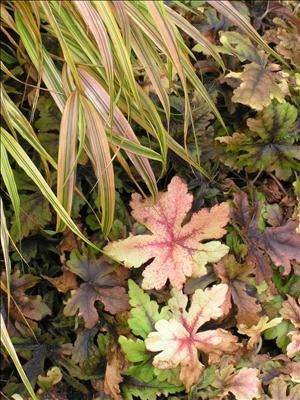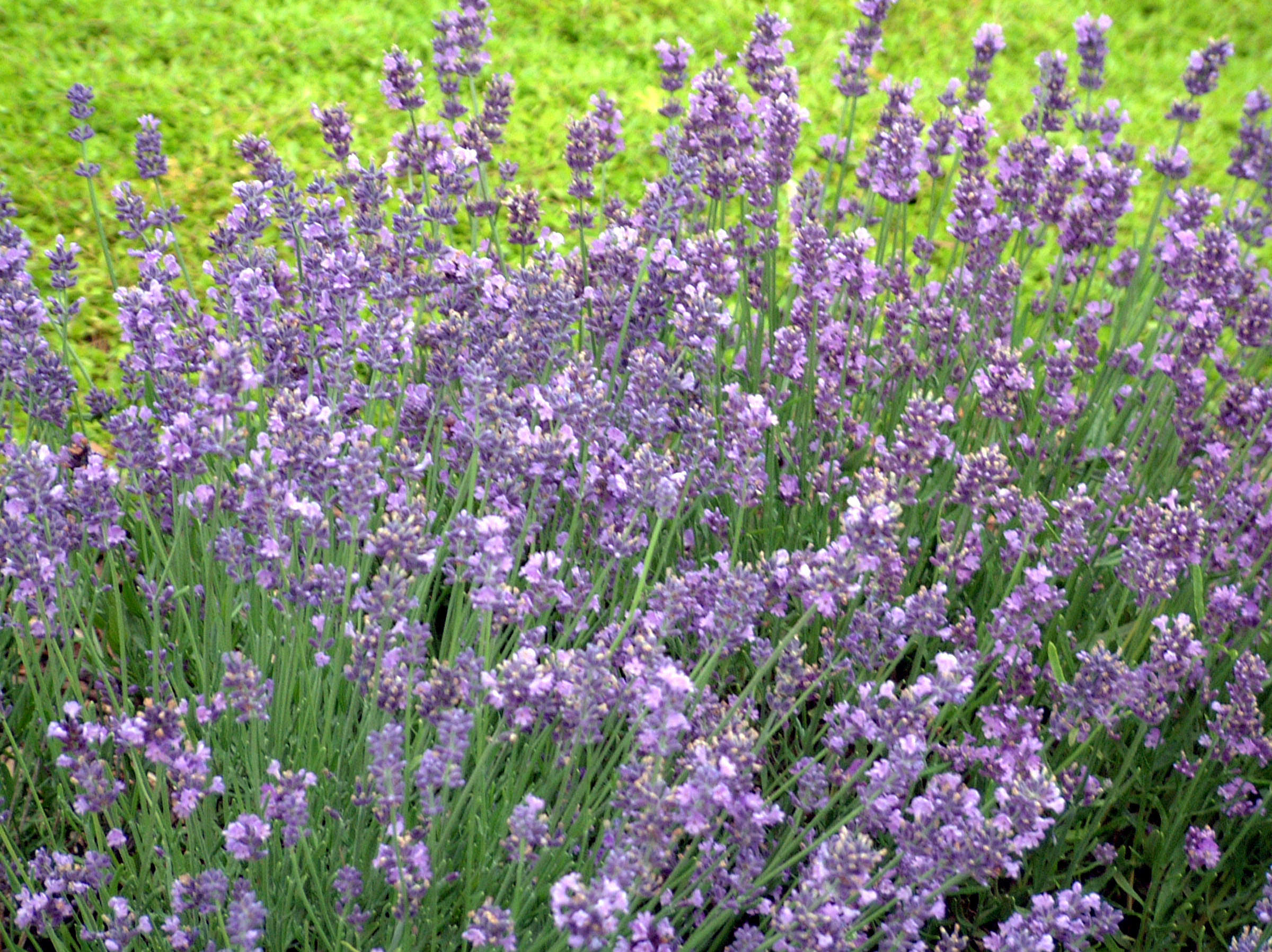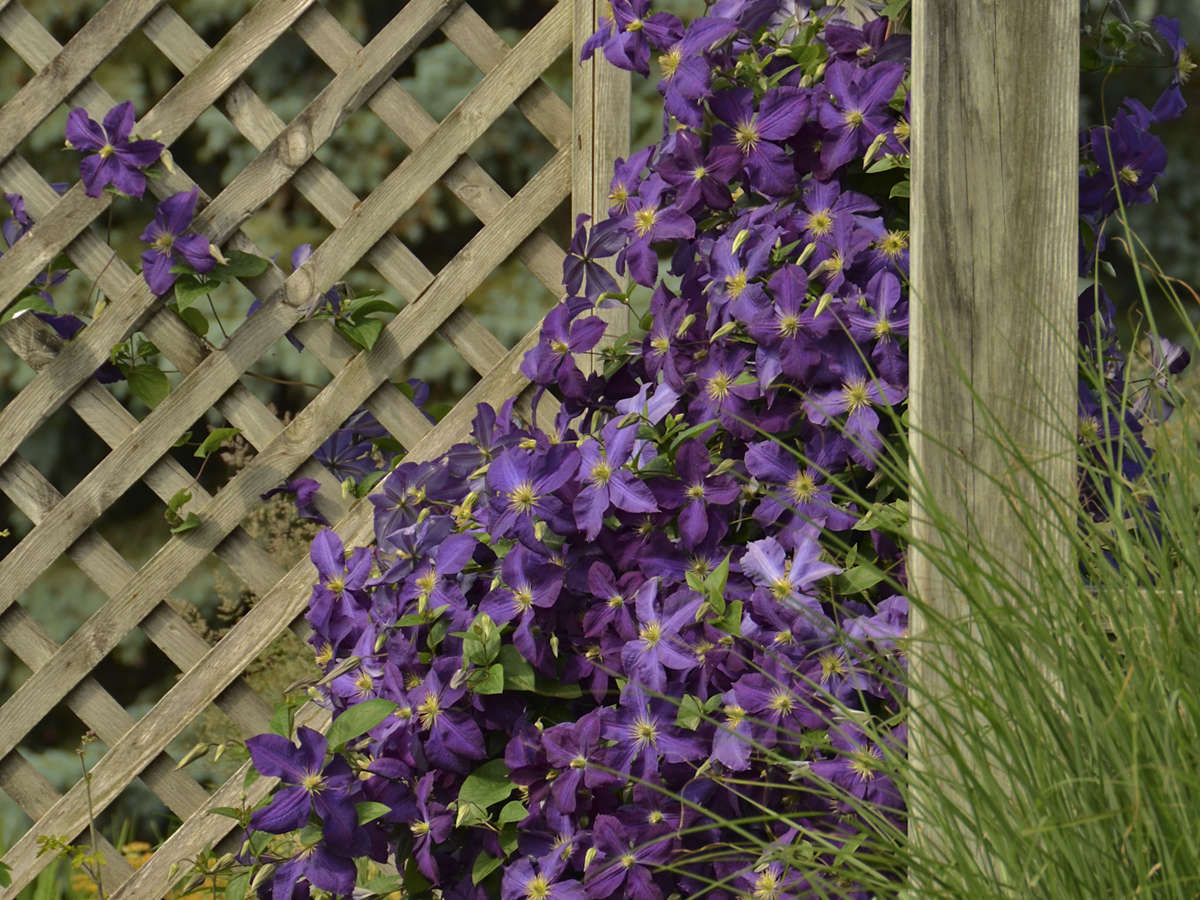Extending the Season with Beautiful Fall Color
10/01/2008
Hakonechloa m. 'Aureola' with Tiarella 'Crow Feather'
Though often overlooked, many perennials exhibit color in the fall, whether it is through their flowers or foliage. Of course, there are classic perennials such as sedum, asters, and mums which are typically offered this time of year by garden centers. Ornamental grasses have also gained popularity because they offer something a bit different than standard perennials: strong vertical appeal, late season bloom, winter interest, and are generally just something that not all of the neighbors have in their garden.
But have you ever taken the time to notice the fall foliage color of perennials? If you think you have to plant a maple tree in your garden to see red in the fall, think again! There are some perennials whose colors rival even the brightest maple. Take for instance Hardy Geranium 'Orion'. This October, I noticed that it was reblooming in our garden, displaying its large, intense purple-blue flowers above its deeply divided leaves which had taken on brilliant red and yellow tones. The combination of foliage and flower was absolutely stunning.
Perennials in Bloom or Reblooming
- Gaura (Wand Flower)
- Lamium
- Achillea m. 'Paprika' and 'Apple Blossom' (Yarrow)
- Gaillardia (Blanket Flower)
- Hardy Geranium (especially 'Rozanne' and 'Orion')
- Phlox p. 'Glamour Girl', 'Laura' and 'Orange Perfection' (Tall Garden Phlox)
- Ornamental Grasses
- Tanacetum v. 'Isla Gold' (Tansy)
- Tall Bearded Iris 'Feed Back', 'Autumn Circus', and 'Immortality'
- Salvia (Perennial Salvia)
- Delphinium 'Bellamosum' and 'Green Twist'
- Vinca minor 'Ralph Shugert' (Myrtle, Periwinkle)
- Polygonum aubertii (Silver Lace Vine)
- Nepeta f. 'Six Hills Giant' and 'Walker's Low' (Catmint)
- Armeria m. 'Cotton Tail' (Common Thrift, Sea Pink)
- Campanula r. 'Olympica' (Bluebells of Scotland)
- Clematis (some reblooming, others with attractive seed heads)
Perennials Exhibiting Fall Foliage Color
- Aruncus aethusifolius — gold and orange (Dwarf Goat's Beard)
- Upright Sedums — yellow (Stonecrop)
- Sedum r. 'Angelina' — orange-tipped foliage (Blue Spruce Stonecrop)
- Geranium — range in color from scarlet to purple to orange to yellow (Hardy Geranium, Cranesbill)
- Schizachyrium scoparium — copper (Little Bluestem)
- Ornamental Grasses — range in color from purple to red to orange to gold
- Amsonia hubrichtii — rich, warm gold (Arkansas Blue Star)
- Ceratostigma plumbaginoides — deep crimson to purple (Plumbago, Leadwort)
- Euphorbia — red (Spurge)
- Geum 'Fireball' — red (Avens)
- Heuchera s. 'Ruby Bells' — red to purple (Coral Bells)
- Hibiscus — dark foliage and sporadic late blooms (Hardy Hibiscus)
- Bergenia — red (Heartleaf Bergenia, Pig Squeak)
- Hosta — range in color from gold to orange to tan
- Heucherella — range in color from red to orange to yellow to purple (Foamy Bells)
- Tiarella — range in color from purple to red to yellow (Foamflower)
So the next time you are buying perennials, consider not only what the plants look like at the time of purchase, but also how they might change in the fall. With some careful planning, perennial gardens can hold their interest through spring, summer, and fall.

